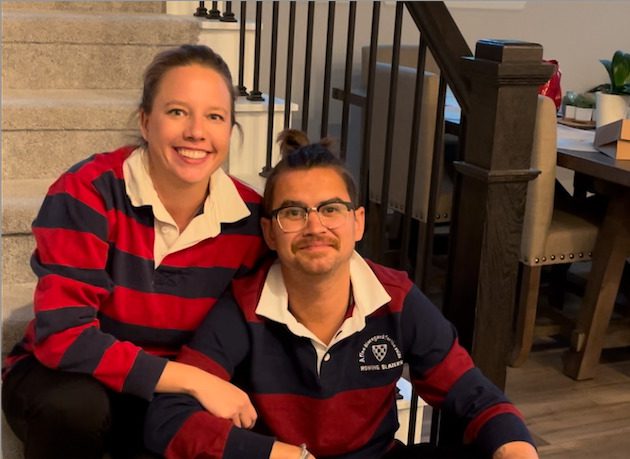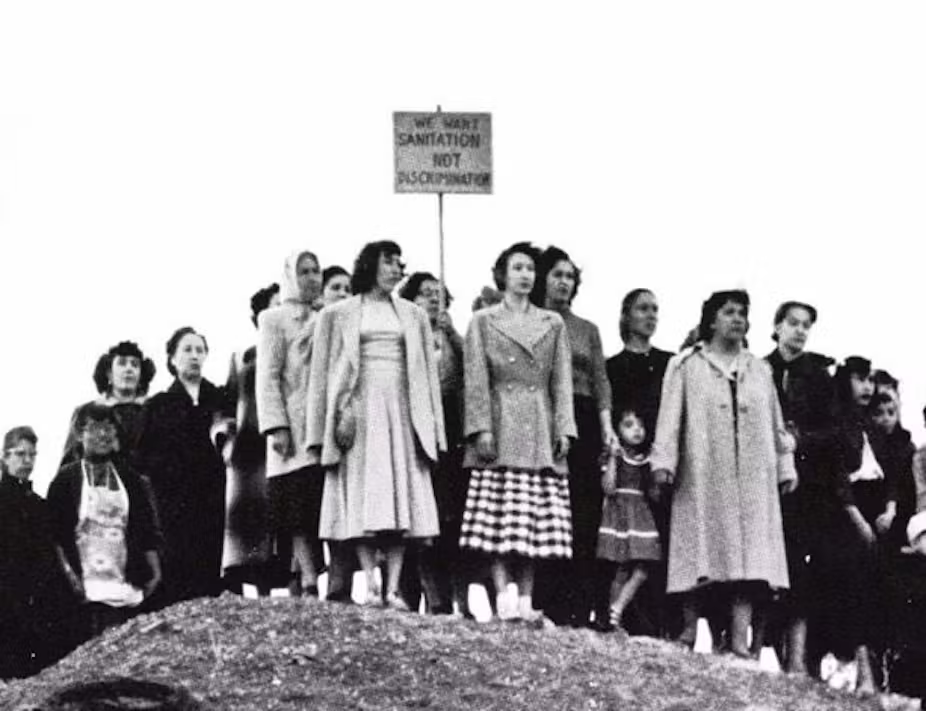
Megan and Kevin Bond say their family would have helped Megan get her two abortions even if Texas's bans meant they'd face jail time. Courtesy Photo/Megan Bond
What would you do if your pregnant wife learned that the baby you both desperately wanted was doomed to die just minutes after birth?
Suppose your baby had a fatal condition that prevented lung development, leaving no chance for survival—and that your only opportunity to hold the child alive would be as it gasped for air, turned blue and died in your arms.
Would you follow the wishes of Gov. Greg Abbott and Attorney General Ken Paxton—two men who know nothing about you or your family—and remain in Texas, risking your wife’s health and future fertility in service of their political party’s abortion bans that have no exceptions for babies with fatal fetal anomalies?
Those were the questions Kevin Bond faced after he and his wife, Megan, received the heartbreaking news that their first baby suffered from bilateral renal agenesis, a rare fatal condition.
Only one in 8,500 babies develop in utero with this condition. The couple had struggled with infertility and turned to in vitro fertilization to conceive. The first transferred embryo attached and appeared to be developing normally—bringing elation to their extended family at Christmas.
A few months later, a maternal-fetal medicine specialist reviewed the couple’s 17-week anatomy scan and explained that their baby had no kidneys. Without kidneys, the fetus could not produce amniotic fluid, and without fluid, the baby’s lungs could not develop.
The couple was stunned by the news.
“We went to the parking lot and bawled in each other’s arms,” Megan told COURIER Texas.
Read More: ‘Texas law forced me to choose: Watch my baby die or flee my home for medical help’
They then faced a terrible choice: leave Texas to arrange for an abortion in a state where the procedure was legal, or abide by state law and remain pregnant until their baby’s birth and death.
A ‘dead’ bill comes back to life
As difficult as the choice was for Kevin and Megan in early 2024, when they went to Colorado for an abortion procedure, the decision has since become more complicated for the loved ones of other pregnant women in Texas seeking abortions.
That’s because of Senate Bill 31, which the legislature passed in June.
SB 31 references the 1925 abortion ban. This century-old law, previously considered “dead,” was revived in the new bill written by Republican Sen. Bryan Hughes, who also authored the state’s first new abortion ban, Senate Bill 8, which allows civilians to sue anyone who provides or enables an abortion to any Texas woman.
By referencing the 1925 law, SB 31 opened the door to criminal prosecution for anyone who helps a pregnant woman leave Texas for an abortion, said Molly Duane, an attorney with the Center for Reproductive Rights.
Since the 1925 ban became enforceable again, Attorney General Ken Paxton, an anti-abortion Republican, confirmed in a tweet that he thinks it is “100% good law.”
The old Texas ban criminalizes both performing an abortion and “furnishing the means for an abortion.” Anyone convicted—including a husband, family member or a friend—could face two to five years in prison.
This means loved ones who help a pregnant Texan leave the state for a legal abortion elsewhere now risk jail time.
In Megan’s case, the decision to end her pregnancy would have been even more heartbreaking, had SB 31 been passed at the time. “I knew immediately (after hearing my fetus’s diagnosis) that I would terminate the pregnancy and have an abortion,” Megan said.
“After hearing that my baby—if he survived birth—would suffocate because his lungs wouldn’t work and it would be incredibly painful for him, I knew I would take on my baby’s pain so that he wouldn’t have to have it.”
Now, with the 1925 ban re-activated, leaving Texas with the help of her husband and her parents as Megan did last year would put her family at risk of going to prison.
Kevin said if they faced the same tragic situation again, he would not be deterred by the law. “The woman I love was in need of life-saving care, and I was going to do whatever was necessary to make that happen,” he said.
“I would wager that these policymakers, if pressed, would make the same decisions we did. We disagree about a lot, but the love for your partner and their safety is paramount.”
He is outraged that lawmakers would try to push a pregnant woman away from the assistance of her closest family members or other loved ones during a time when she needs them most.
“This is an unacceptable overreach by a party aiming for small government,” Kevin said. “These policies put women at risk and strip them of agency. Even though this legislation has passed, I will do whatever it takes to take care of my family.”
Megan said when she, Kevin and her parents were suffering the loss of their baby, it never crossed their minds that helping her could land family members in trouble.
Lightning strikes twice
Tragically, Megan and Kevin faced the same situation a year later, when a second IVF pregnancy resulted in another baby being diagnosed with bilateral renal agenesis. The couple had effectively been struck by lightning twice, as there was no clear reason that both babies would have the rare, fatal disorder.
SB 31 had not yet been passed—but Megan said they would have defied it once again if that was their only option.
“Making this decision to leave the state for an abortion is something we would do, no matter what the laws are,” she said. “I would likely have wanted to make the trip myself, but I know my loved ones wouldn’t allow that.”
“My father has extensive medical training,” she said. “He fully supported the decision as a doctor, a father, and a grieving grandfather.”
Mark and Karen Brown said they agreed with their daughter and son-in-law’s decision to end the pregnancies, which carried the babies who had already been named Keith and Teddy.
“When we received Keith and Teddy’s diagnoses, our entire focus shifted to doing what was best for them and our daughter. We weren’t thinking about legal consequences or political ramifications,” they said in a joint statement to COURIER Texas.
“We were grieving grandparents. The fact that we had to leave Texas for medically recommended care added an entirely unnecessary layer of stress, heartbreak, and logistical strain at an already devastating time.”
“Leaving the state also meant that we were separated from our friends, our church community, and the comforts of home, just when we needed them the most. It was deeply frustrating that such a critical medical decision, one that should have been between our daughter and her doctors, was instead subject to laws written by politicians.”
The Browns said the government’s effort to prevent people from leaving the state for essential medical care is terrifying.
“When we were faced with a heartbreaking situation, we needed medical support and compassion, not surveillance and punishment.”
They condemned the decision to criminalize families under SB 31. “Trying to criminalize families just adds cruelty to the crisis. And it doesn’t protect anyone.”
Despite all the heartbreak, Megan and Kevin still plan to try to get pregnant again. But they may leave Texas.
“We both love Texas,” said Megan, who is CEO of a small business based in Texas. “But if the laws continue to get worse, we would consider leaving the state that my family has lived in for eight generations.”













